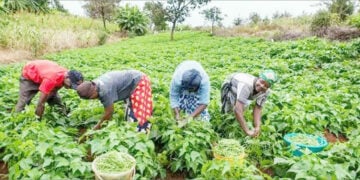The Rural Electrification Agency (REA) is supporting a solar panel production asset in Lagos in preparation for an import exit plan by the federal government.
The government is determined to phase out the importation of photovoltaic (PV) solar panels into Nigeria, after it found over N200 billion spent on solar panel imports.
The move is part of a broader strategy to promote local production and industrial self-reliance in the renewable energy sector.
In preparation, the REA and the Lagos State government signed a Memorandum of Understanding(MoU) focused on expanding electricity access to underserved rural communities across the state.
As part of the new direction, the REA announced ongoing initiatives aimed at scaling up local capacity to produce solar technology components domestically. Lagos, often regarded as Nigeria’s commercial and innovation nerve centre, is set to take the lead in this transition.
In recent years, the REA has partnered with private investors to set up solar panel assembly plants within the state. One of the early milestones includes a facility located in Ikotun, which began with a modest production capacity of 10 megawatts.
Backed by the Agency, the plant has since expanded its capabilities tenfold, reaching a 100-megawatt output.
Further reinforcing the shift toward localised production, the REA disclosed plans to finalize a joint development agreement with Green World for the establishment of a lithium battery assembly plant in Lagos.
The proposed project, estimated at $150 million, is expected to support the long-term sustainability of Nigeria’s clean energy transition.
The federal government’s drive for solar panel domestication aligns with broader policy objectives championed by the Ministry of Science and Technology.
Officials have highlighted the potential of institutions like the National Agency for Science and Engineering Infrastructure (NASENI) to meet domestic demand for solar products, with some local factories already producing panels.
However, the move to restrict solar imports has not gone unchallenged. The Renewable Energy Association of Nigeria (REAN) has raised concerns about the potential consequences of such a policy.
According to the Association, while domestic manufacturing is essential, an outright ban on imports without first establishing sufficient local capacity could stall the sector’s momentum.
Solar energy has emerged as a critical lifeline for millions of Nigerians living without reliable access to the national electricity grid.
Across the country, solar solutions have powered homes, businesses, schools, and health facilities, offering clean and affordable alternatives to diesel generators.
With increasing investments flowing into Nigeria’s renewable energy landscape, stakeholders caution that premature policy restrictions may undercut progress in the sector.
They stress the need for a balanced approach that supports local production while sustaining access to global technology and supply chains.
As Nigeria continues to navigate its energy transition, the government’s success in industrialising the solar sector may hinge on how well it manages the intersection of policy ambition, private sector readiness, and the realities of local manufacturing.





